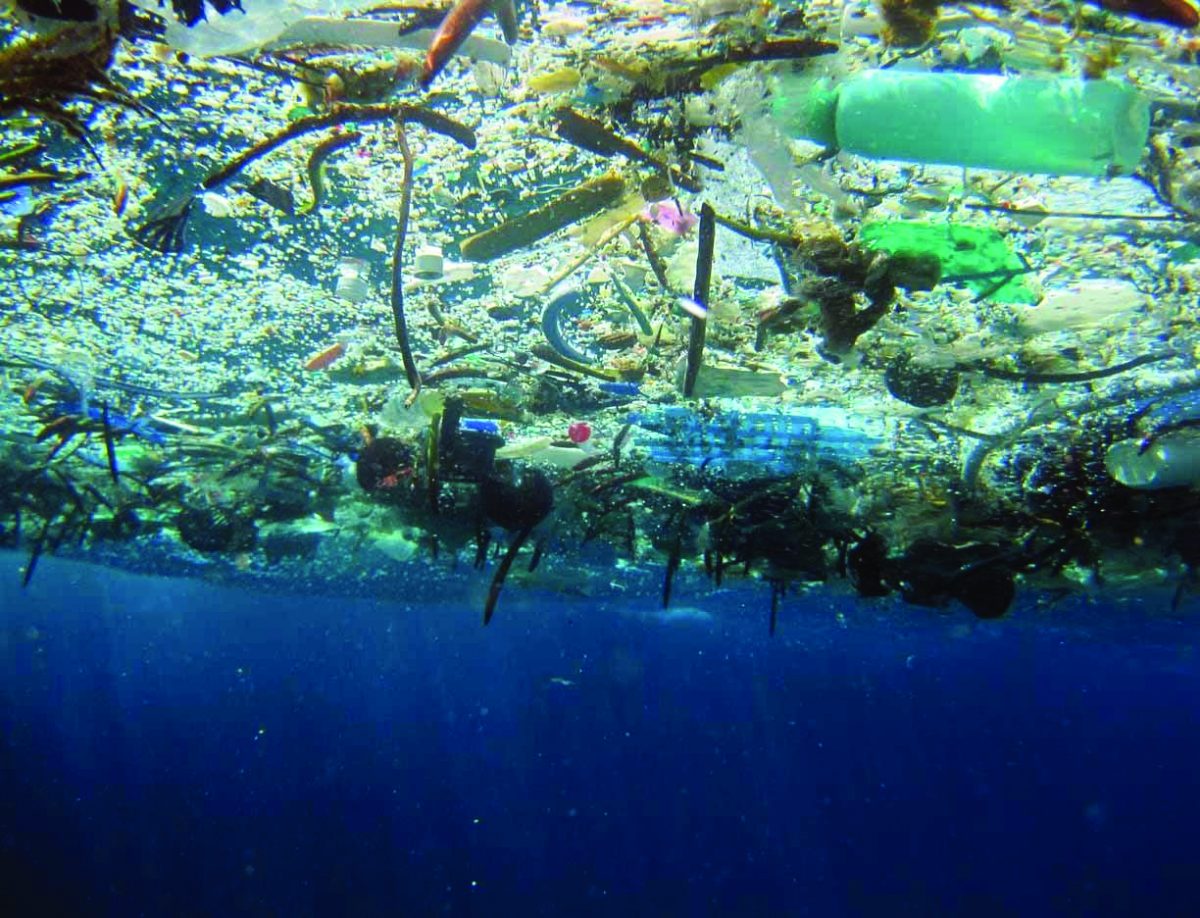
Oceana is a nonprofit organization dedicated to protecting and restoring the world’s oceans.
North Carolina is responsible for some important “firsts” in our nation’s history. We were the first state to instruct delegates to vote for independence from England. As our license plate boasts, aviation began here when the Wright brothers completed their first flight in Kitty Hawk. Plus, the first American mini-golf course was constructed here in Pinehurst. (OK, maybe that last one wasn’t quite as significant.)
Supporter Spotlight
The point is, we have a history of leading. Yet we’re lagging behind our fellow states when it comes to combatting a growing problem that affects North Carolina intimately: plastic pollution. An estimated 33 billion pounds of plastic enter the ocean every year — that’s roughly equivalent to dumping two garbage trucks full of plastic into the oceans every minute. Marine life is choking on it, and people are now breathing, eating and drinking it. It’s everywhere — including our state’s coastlines.
Marine animals have been reported suffering from plastic impacts for years in North Carolina waters, according to a November 2020 report by Oceana. Here’s a quick snapshot of what those impacts can look like: In 2009, a leatherback sea turtle (a species listed as endangered under the Endangered Species Act) was discovered in North Carolina with balloons and a 2-foot-long plastic bag in its body. In 2015, a bottlenose dolphin was found here with a child’s plastic ring toy entangled around its head.

These are animals that draw people to our shores. Dolphins, whales and the occasional seal, sea turtle and manatee create special moments for visitors who don’t often have access to such experiences. They come here for pristine beaches, ocean scenes and the myriad forms of recreation that our coast provides. In fact, our 3,375 miles of coastline generate $3.1 billion gross domestic product through activities like tourism, recreation and fishing. Additionally, this robust coastal economy supports around 62,000 jobs.
If business continues as usual, the plastic pollution crisis will intensify. The plastics industry expects annual production will more than triple by 2050. As plastic production increases, so will the amount of plastic entering the ocean. North Carolinians will not only see these impacts as our coastlines become more polluted; they’ll also feel them as plastic continues to damage the critical and diverse ecosystems that support our commercial fishing and recreational businesses.
The most effective way to curb the plastic pollution crisis is to reduce the production and use of single-use plastic products. These items are profoundly flawed by design: They’re created from a material made to last forever but are designed to be thrown away and are sometimes only used for a moment before polluting the Earth for years to come. The top 10 waste items found in worldwide coastal cleanups are all single-use plastic products — and this has been the case every year for several years. Plastic food wrappers, bottles, straws, cups, plates, bags, takeout containers and more have taken over our coastlines.
Supporter Spotlight
Our coast is quite literally our lifeline. And it is being increasingly sabotaged by plastic. So why aren’t our businesses and policy-makers doing something about it?
Companies have a responsibility to change course — and they’d be wise to do so considering the path we’re on. They need to stop using so much unnecessary single-use plastic and instead turn to more sustainable alternatives before it’s too late. Unfortunately, we’re not seeing this necessary shift in the companies that provide many of the products we depend on every day.
That’s why our local and state lawmakers are such a crucial piece of the puzzle. Hundreds of cities across the U.S. have said “enough is enough” and passed policies banning certain forms of unnecessary single-use plastic, such as plastic bags, straws and plastic foam food containers. Over a dozen states — most of which hug the coast — have passed bills to limit single-use plastics.
North Carolina, however, has failed to address the issue. Like plastic, we’re just kind of floating along as the problem escalates.
So it makes perfect sense that city and state governments across the country are passing policies to reduce these unnecessary products. Why haven’t we? North Carolina cannot remain stagnant when it comes to addressing this issue. We have too much to lose.
It’s time we stepped up to the plate and remembered the change we can effect on the rest of the country when we lead. I am calling on our elected leaders to champion smart, effective policies to phase out the use of unnecessary single-use plastics. We need change now. Our future is at stake.
To stimulate discussion and debate, Coastal Review welcomes differing viewpoints on topical coastal issues. See our guidelines for submitting guest columns. The opinions expressed by the authors are not necessarily those of Coastal Review or the North Carolina Coastal Federation.







